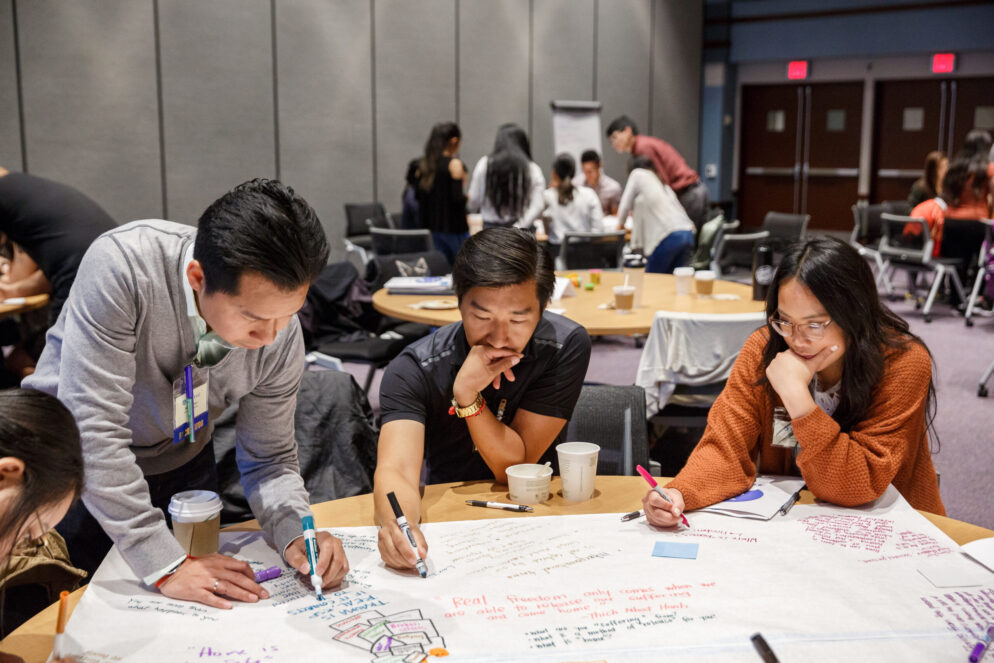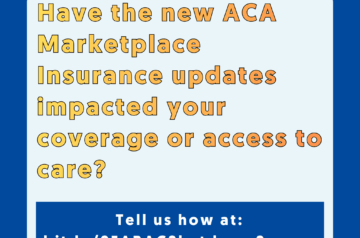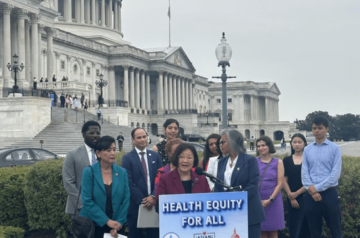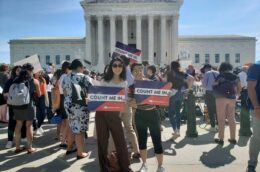We convene a data equity workgroup in partnership with the California Department of Public Health, to ensure data laws are compliant and best practices are institutionalized. We focus on Assembly Bill 1726 as a case study, which mandates the disaggregation of health indicators into more specific AA and NHPI subgroups.
Key resource:

This policy brief presents key challenges to implementing California Assembly Bill 1726, which passed in 2016 and requires the California Department of Public Health to break down broad demographic data it collects into more specific Asian American, Native Hawaiian, and Pacific Islander subgroups.
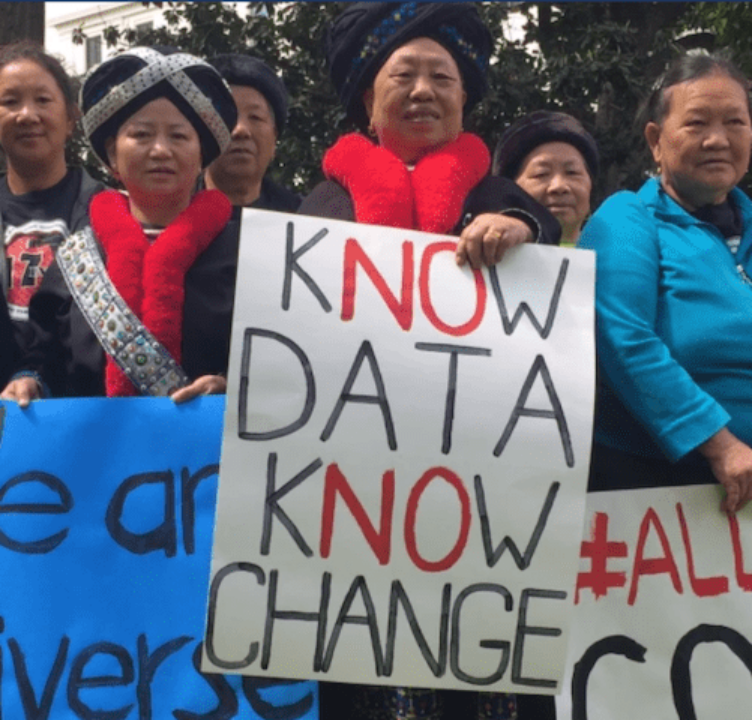
Featured story
SEARAC Policy Brief Highlights Opportunities, Challenges to Achieve Data Equity for AA and NHPI Communities in California
SEARAC is proud to release “AB 1726: A California Case Study on Disaggregating Public Health Data by Race and Ethnicity,” a new policy brief that presents key challenges to implementing California Assembly Bill 1726, which passed in 2016 and requires the California Department of Public Health (CDPH) to break down broad demographic data it collects into more specific Asian American, Native Hawaiian, and Pacific Islander (AA and NHPI) subgroups.
Learn more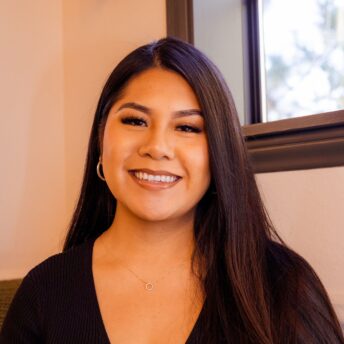
“Data disaggregation is a decades-long advocacy issue that Native Hawaiian and Pacific Islander (NHPI) communities have fought for and will continue to fight for until our communities are thriving. EPIC understands data disaggregation is one of the critical ways to uncover and address NHPI health and social inequities. AB 1726 would make the health outcomes of additional NHPI ethnic groups including Tongans and Fijians visible.”
Empowering Pacific Islander Communities

“Southeast Asian Americans (SEAAs) experience unique health inequities due to our experiences with war, genocide, and displacement. For example, heart disease and cancer are the leading causes of death for SEAAs in California, potentially linked to toxic chemicals used during the violence in Cambodia, Laos, and Vietnam. Almost half of SEAA Californians are limited English proficient and experience linguistic and cultural barriers to accessing care. Community leaders and policymakers need disaggregated data in order to identify disparities various populations face and create evidence-based solutions that improve health outcomes for all.”
SEARAC
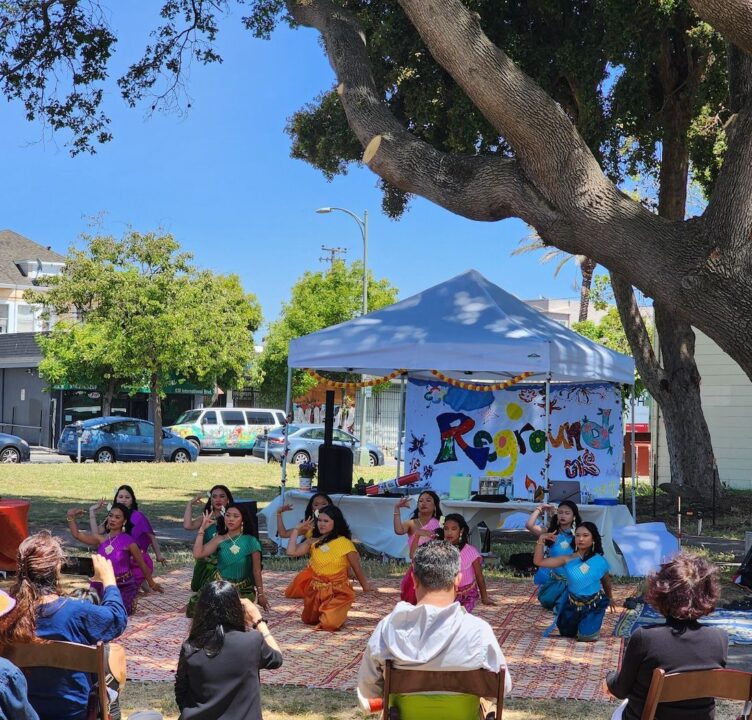
Subscribe to our newsletter for the latest updates on the SEARAC community, and to learn more about how you can get involved.
Last night, President Trump lied to the American people. He spun an illusion of America where communities are safe from violence, healthcare costs are the lowest they’ve been, and children have all the supports they need to learn. Quyên Đinh, SEARAC Executive Director, shared, "Our communities are unveiling the truth of this Administration’s cruelty. Our strength has always come from collective action, from generations standing together and demanding better. Despite the President’s lies last night, we know that progress, justice, and truth will ultimately prevail."
Read the full statement at the link in our bio.
Feb 25

The Southeast Asian Deportation Relief Act #SEADRA will prevent deportations of Southeast Asian refugees, ensure access to work permits, and end ICE check ins. Southeast Asian Americans deserve safety, dignity, and a chance to thrive. Tell Congress to support #SEADRA and endorse it today: linktr.ee/searac.
Feb 24

With families at risk today, we choose action and hope. Southeast Asian Deportation Relief Act #SEADRA would protect Southeast Asian refugees and immigrants, keep families together, and restore due process. The time to pass SEADRA is now. Join us in standing with our communities against unjust detention and deportation and endorse SEADRA today: linktr.ee/searac.
Feb 23

Last week, @searac and @seafnofficial celebrated the reintroduction of the Southeast Asian Deportation Relief Act #SEADRA. SEADRA affirms a simple truth: Southeast Asian Americans deserve to live in safety, stability, and dignity with their families. Thank you to @repjudychu and @pramilajayapal for being champions of this bill and to our Southeast Asian American community leaders for honoring us with your powerful stories. We know community wins are possible with collective action. Watch a recording of the event and endorse SEADRA today: linktr.ee/searac.
Feb 23

SEARAC’s 2025 Annual Report is now available on our website. Inside you’ll find our policy advocacy victories, recap of events from our 50th anniversary “Our Roots, Our Power” campaign, and more from the front lines of building power with Southeast Asian American refugee and immigrant communities. Read the report at bit.ly/SEARAC2025annualreport
Feb 23


